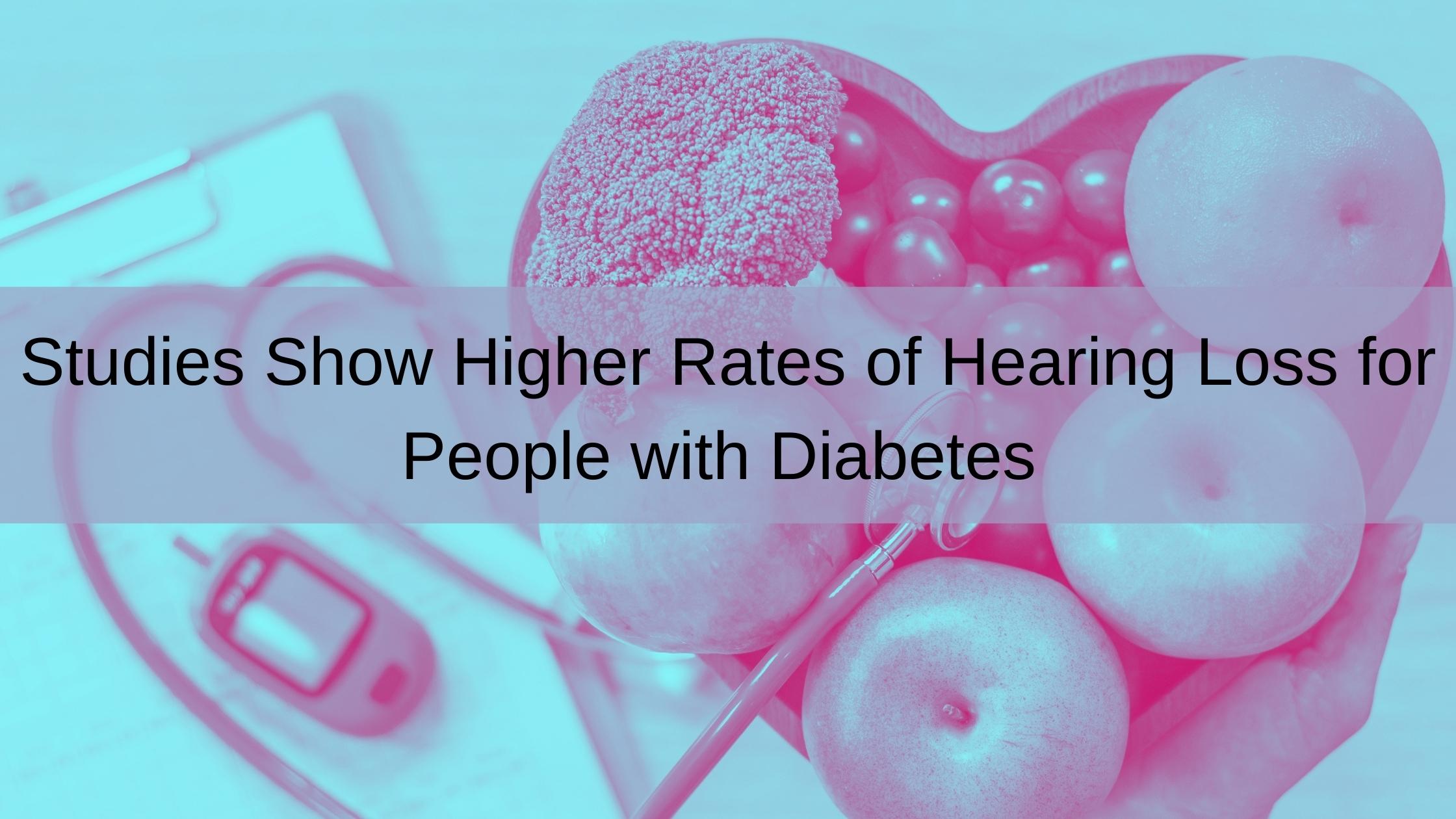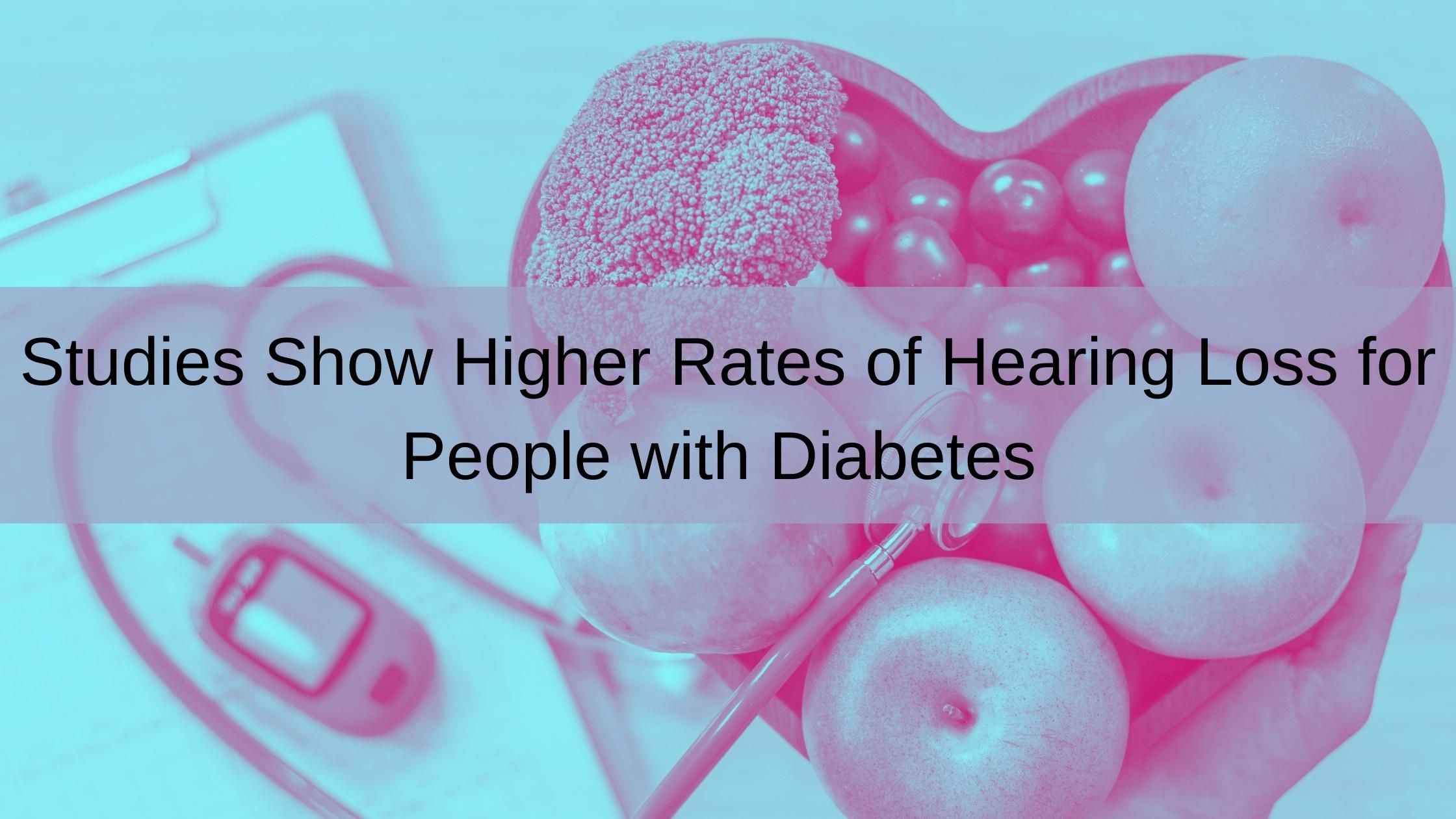All About Bluetooth Hearing Aids
Do you remember the hearing aids your parents or grandparents used to

By: admin | February 22, 2021
 Diabetes affects 34.2 million people in the US, which adds up to 1 in 10. Even more alarming is that 1 in 3 or 88 million Americans are found to be prediabetic and may not even know it! Diabetes is a serious comorbidity, which can adversely affect many aspects of your health such as your heart, nerves, feet, kidneys and eyes. To make things worse scientists are finding persuasive facts that diabetic patients are twice as likely to develop a hearing loss.
Diabetes affects 34.2 million people in the US, which adds up to 1 in 10. Even more alarming is that 1 in 3 or 88 million Americans are found to be prediabetic and may not even know it! Diabetes is a serious comorbidity, which can adversely affect many aspects of your health such as your heart, nerves, feet, kidneys and eyes. To make things worse scientists are finding persuasive facts that diabetic patients are twice as likely to develop a hearing loss.
Hearing loss is not just an ear issue but also a communication issue. When people struggle to hear and respond to people on a daily basis this can cause frustration on both sides as well as stress anxiety and chronic depression. People with untreated hearing loss are less likely to try new things or reach out to people in their life, as communication becomes a source of stress and even exhaustion. The alarming thing is that when people are less social, chronically depressed and less active due to a reduced ease of mobility due to hearing loss, their overall health is affected. One of the greatest risks of diabetes is under activity and lack of exercise.
Glucose comes from the foods you eat. Diabetes is a disease in which your blood glucose levels, also called blood sugar levels are high enough to restrict your cells from absorbing oxygen-rich blood. A hormone called insulin regulates blood sugar so your cells can easily pass glucose and essential nutrients to your cells throughout your body. Diabetes occurs when your body does not make enough insulin such as in type 1 diabetes or produces insulin, which is insufficiently able to be absorbed as in type 2. Type 2 diabetes is by far the most common type of diabetes developing in people of all ages often due to a diet high in processed sugar and under activity. There are currently 88 million people or 1 in 3 in the US who are prediabetic, meaning that their blood sugar levels are high enough to be at risk for developing into type 2 diabetes and this number has continued to rise in the last decade by 50%.
In June 2008, a study by the U.S. National Institutes of Health (NIH) published in the Annals of Internal Medicine, uncovered a substantial connection between the two conditions. By examining the results of hearing tests across working-age adults of different income brackets and professions and comparing them to instances of diabetes, the researchers found the diabetic patients were far more likely to have hearing loss as well.
A similar 2011 study from the Tsukuba University Hospital Mito Medical Center in Ibaraki, Japa, compared the results of 13 different studies on the topic including over 8000 patients with hearing loss with about 23,000 with no hearing impairment. The study found that hearing loss is more than twice as common in people with diabetes than in non-diabetics. Of those with hearing issues, 1000 had diabetes in comparison to 2500 without diabetes making the likeliness 2.3 times more.
Diabetes can cause nerve and cell damage to parts of the body when they are not able to absorb essential glucose and nutrients due to an insufficient supply of glucose. Our hearing relies on tiny cells in the inner ear, which are in the likeness of hairs. These hairs transmit sound waves in the form of electrical pulses to the brain to be interpreted and rely on a healthy supply of oxygenated blood to remain healthy. When these cells are damaged due to diabetes it can cause permanent damage to your ability to hear.
Understanding how to reduce your risk of diabetes can also protect your hearing. Make sure to eat a healthy balanced diet rich in vegetables and low-fat proteins while avoiding processed sugars and foods. It is also important to stay active and raise your heart rate for at least 30 minutes daily. If you do suspect you have a hearing loss it could mean that diabetes is also an issue. It’s a good idea to stay on top of both of these conditions.
Make an appointment to have your hearing checked as well as regularly screen for diabetes. The more we understand how our entire health is linked the easier it can be to maintain our total wellbeing. Contact us today to schedule a hearing test!

Do you remember the hearing aids your parents or grandparents used to
By: admin | August 7, 2022

Do you ever find yourself at the end of a long day only to be confronted
By: admin | August 7, 2022

How Common is Hearing Loss Many people might be shocked to learn how
By: admin | June 22, 2022
